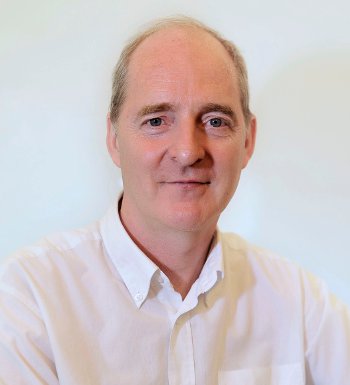A DIRECTOR for the Geneva-based International Organisation for Migration has spoken out against the “cold attitude” and lack of concern in Britain for migrants, comparing it to that of the Irish here in the 1950s.
Leonard Doyle believes there is a lack of public interest and concern because people “think poorly of migrants”. The issue is “highly politicised, especially in the UK,” says the Irishman, a former foreign editor at both The Independent and The Observer.
“Migrants are treated as if they are unwelcome, as if they are cheating the system. Irish migrants were treated exactly the same all those years ago, they were treated as second class citizens and discriminated against and look at the extraordinary contribution we made to society in the UK and in the US,” he added.
 International Organisation for Migration's Leonard Doyle
International Organisation for Migration's Leonard DoyleMr Doyle was speaking following the death of 500 migrants who drowned last month when the boat transporting them from Egypt to Malta was believed to have been deliberately sunk in the Mediterranean Sea.
“I think when we are lulled into agreeing with the rabid media and their views on migrants we should just think back a little bit on our forefathers and how they were treated,” the intergovernmental spokesperson told The Irish Post.
While 2014 is now the worst year on record for refugee drownings in the Mediterranean, the tale is depressingly familiar to Doyle, who won an award for his coverage of another ship deliberately sunk off Malta, killing 400 people during his time at The Observer.
“If the people who died were Irish, British, Israeli or American you’d have an enormous response but because they are stateless Palestinians or fleeing war, people have a very cold attitude to migrants these days”, he said about the recent tragedy.
Originally from Thurles, Co. Tipperary, Doyle grew up in Mallow, Co. Cork and later studied economics and politics at UCD.
He began his career as a freelance journalist for The Irish Times before moving to Brussels, working for The Guardian and becoming one of the early New York correspondents for The Independent.
Journalism was attractive, because as Doyle explains: “I liked getting to the bottom of things and like many journalists I liked asking questions...one of the great reasons for journalism at the end of the day is to query decisions made by people who maybe aren’t making them in the best interest of people in society.”
After the devastating earthquake in Haiti in 2010, Doyle joined IOM, a global organisation closely allied with NATO with about 9,000 people working in every country in the world.
Currently the IOM are working in Ebola-affected Liberia, Syria, Iraq and the Philippines or “anywhere with a migration aspect… in other words, people being shoved out of their homes,” says Doyle.
He added that Irish people have and continue to contribute aid internationally including to IOM, stating: “Ireland is a country of migrants, we have been for generations. Irish aid makes a big difference we’ve a lot to be proud of.”

